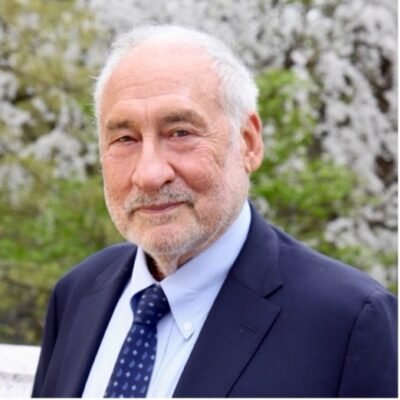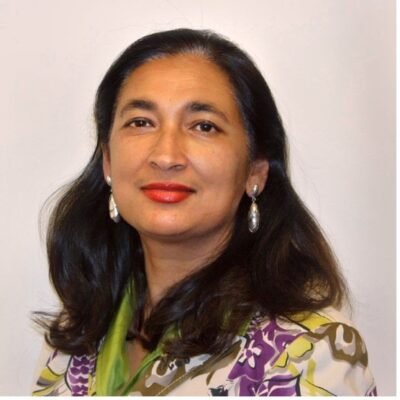The Care Economy in Korea: Beyond COVID-19 and Towards a Sustainable Caring Society - Distinguished Speakers
The Care Economy in Korea: Beyond COVID-19 and Towards a Sustainable Caring Society - Distinguished Speakers
2021 International Care Policy Conference
The Care Economy in Korea: Beyond COVID-19 and Towards a Sustainable Caring Society
Speakers

Young-Ai Chung
Minister of Gender Equality and Family, Republic of Korea
Young-Ae Chung is the Minister of Gender Equality and Family of the Republic of Korea. She majored in women's studies and family at Ewha Womans University Department of Sociology, and at Ewha Womans University Graduate School, she earned the first doctorate in women's studies literature in Korea. She served as the graduate director and vice president of the Seoul Cyber University, and served as a director of the Korea Foundation for Women and chairman of the Korean Association of Women's Studies. She has been a civilian member of the Presidential Committee on Aging Society and Population Policy and has been conducting research and administration focusing on women and the elderly.

Mark Malloch-Brown
President, Open Society Foundations; Former Deputy Secretary-General, United Nations
Mark Malloch-Brown is president of the Open Society Foundations, the world’s largest private funder of independent groups working for justice, democratic governance, and human rights. He has served on Open Society’s global board since 2009. In his career of service, Malloch-Brown has worked to advance human rights, justice, and development in a variety of roles: serving as deputy secretary general of the United Nations under Kofi Annan; heading the United Nations Development Programme; directing external affairs at the World Bank; and working as a British government minister. He also co-founded Crisis Group, an NGO focused on preventing and averting violent conflict. More recently, he chaired Best for Britain, a group that makes the case for Britain’s engagement with the European Union. He has worked with a range of private companies, as well as leading the boards of the Royal Africa Society, the UN Foundation, and the Business Commission for Sustainable Development.

Jeongwoo Choi
CEO, POSCO
Jeong-woo Choi is currently POSCO CEO. As a steel industry expert with 39 years of experience, he has been working as a management strategy manager of POSCO E & C, planning and finance director of POSCO Inter National, director of POSCO's value management center, and president of POSCO Chemical. In particular, he has laid the foundations for becoming a 100-year company by leading the acquisition of low-carbon, eco-friendly future growth engines, focusing on green and mobility such as hydrogen business and secondary battery material business. After the inauguration of the chairman in 2018, he declared "corporate citizens who develop together" as a new management ideology and emphasized the need to contribute to the creation of a robust industrial ecosystem and solving social problems. For this achievement, he won the Management of the Year Award by business scholars in 2020. Especially, among social problems, he is very interested in low fertility issues and are leading the way for presenting a company-friendly Role Model.

Maria S. Floro
Professor of Economics, American University / Co-Principal Investigator, CWE-GAM Project
Maria S. Floro is Professor of Economics at American University in Washington DC and co-director of the Graduate Program on Gender Analysis in Economics (PGAE). Her publications include books on Informal Credit Markets and the New Institutional Economics, Women's Work in the World Economy, and Gender, Development, and Globalization: Economics as if All People Mattered (co-authored; forthcoming) as well as monographs and journal articles on vulnerability, informal employment, urban food security, time use and well-being, financial crises, urban poverty, households savings, credit, and asset ownership. She has collaborated with researchers, women’s groups, and community organizations in Thailand, the Philippines, Ecuador, and Bolivia in conducting fieldwork on vulnerability, gender, and informal employment in urban poor communities. She is currently working on analysis of time use survey data of China, Mongolia, and Thailand and serves as technical adviser to the Economic and Social Costs of Violence Against Women Project.

Nancy Folbre
Professor Emerita of Economics, University of Massachusetts Amherst / Former President, International Association for Feminist Economics
Nancy Folbre is Professor Emerita of Economics and Director of the Program on Gender and Care Work at the Political Economy Research Institute at the University of Massachusetts Amherst and a Senior Fellow of the Levy Economics Institute at Bard College in the United States. Her research explores the interface between political economy and feminist theory, with a particular emphasis on the value of unpaid care work. In addition to numerous articles published in academic journals, she is the author of The Rise and Decline of Patriarchal Systems (Verso, 2021), the editor of For Love and Money: Care Work in the U.S. (Russell Sage, 2012), and the author of Greed, Lust, and Gender: A History of Economic Ideas (Oxford, 2009), Valuing Children: Rethinking the Economics of the Family (Harvard, 2008), and The Invisible Heart: Economics and Family Values (New Press, 2001). She has also written widely for a popular audience, including contributions to the New York Times Economix blog, The Nation, and the American Prospect. You can learn more about her at her website and blog, Care Talk: http://blogs.umass.edu/folbre/

Joseph E. Stiglitz
University Professor of Economics, Columbia University; Laureate of the Nobel Prize in Economic Sciences (2001)
Joseph E. Stiglitz is an American economist and a professor at Columbia University. He is the co-chair of the High-Level Expert Group on the Measurement of Economic Performance and Social Progress at the OECD, and the Chief Economist of the Roosevelt Institute. A recipient of the Nobel Memorial Prize in Economic Sciences (2001), he is a former senior vice president and chief economist of the World Bank and a former chairman of the Council of Economic Advisers. In 2000, Stiglitz founded the Initiative for Policy Dialogue, a think tank on international development based at Columbia University. In 2011, Stiglitz was named by time as one of the 100 most influential people in the world. Known for his pioneering work on asymmetric information, Stiglitz's research focuses on income distribution, risk, corporate governance, public policy, macroeconomics, and globalization. He is the author, most recently, of People, Power, and Profits and Rewriting the Rules of the European Economy.

Diane Elson
Emeritus Professor of Sociology, University of Essex / Former Chair, Women's Budget Group
Diane Elson, from the United Kingdom, is Emeritus Professor in the Department of Sociology at Essex University, Visiting Professor at the WiSE Research Centre, Glasgow Caledonian University and Research Associate at the Center for Women’s Global Leadership, Rutgers University. She is a member of the UN Committee for Development Policy and is a consultant to UN Women. In 2016, Dr. Elson was awarded the Leontief Prize for Advancing the Frontiers of Economic Thought. She has served as chair of the UK Women’s Budget Group and as Vice-President of the International Association for Feminist Economics. She is the author of many publications and articles on gender equality and economic policy.

Sang-Hyun Song
President, Korean Committee for UNICEF / Former President, International Criminal Court / Professor Emeritus, Seoul National University School of Law
Sang-Hyun Song passed the Higher Civil Service Exam and the National Judicial Service Exam in 1962; graduated from Seoul National University College of Law in 1963, and served as a professor and honorary professor at Seoul National University's Law School from 1972 to 2007. From 2003 to 2015, he served as the Appeals Judge and the President, International Criminal Court. He has served as president of the Korean Law Professors Association, chairman of the Korea Trade Commission, president of the Management Committee of the Judicial Research and Training Institute, and chairman of the National Human Rights Commission Policy Advisory Committee. And He is currently the honorary president of the Korea National Committee for UNICEF.

Anita Bhatia
Deputy Executive Director for Resource Management, Sustainability and Partnerships, UN Women
Anita Bhatia is Assistant Secretary-General and UN Women’s Deputy Executive Director for Resource Management, UN System Coordination, Sustainability, and Partnerships. Ms. Anita Bhatia serves as the Assistant Secretary-General and UN Women’s Deputy Executive Director since August 2019. Before joining UN Women, Ms. Bhatia has had a distinguished career at the World Bank Group, serving in various senior leadership and management positions, both at Headquarters and in the field. She brings extensive experience in the area of international development, strategy, resource mobilization, strategic partnerships, and organizational change management. In various positions, she led teams to deliver significant resources for scaled-up impact, including at the country level, and to craft innovative partnerships to advance development agendas and has made significant contributions to the evolving discourse on development finance. She has led diverse teams, including as Global Head of Knowledge Management, Head of Business Process Improvement, and Head of Change Management. In addition to Latin America, she has worked in Africa, Europe, Central Asia, and South and East Asia. Ms. Bhatia holds a BA in History from Calcutta University, an MA in Political Science from Yale University, and a Juris Doctor in Law from Georgetown University.

에미코 오치아이 (落合恵美子)
Professor of Sociology and Director of Asian Research Center for Intimate & Public Spheres, Kyoto University
Emiko Ochiai is a Japanese sociologist and is Professor of Sociology at Kyoto University, Japan. She is also the Director of Asian Research Center for the Intimate and Public Spheres (ARCIP) at Graduate School of Letters, Kyoto University and the Director of Kyoto University Asian Studies Unit (KUASU). Her areas of interest are family and gender studies from historical and comparative perspectives. Her recent projects cover welfare state and migration to capture the simultaneous transformations in private lives and public institutions. Her English publications include Asian Families and Intimacies, 4 vols. (co-editorship with Patricia Uberoi, Sage, 2021), Transformation of the Intimate and the Public in Asian Modernity (co-editorship, Brill, 2014), Asian Women and Intimate Work (co-editorship, Brill, 2013). and The Stem Family in Eurasian Perspective: Revisiting House Societies, 17th-20th Centuries (co-editorship, Peter Lang, 2009). She is the series editor of The Intimate and the Public in Asian and Global Perspectives from Brill.

Ruth Levine
CEO and Partner, IDinsight / Former Program Director of Global Development and Population, William and Flora Hewlett Foundation
Ruth Levine, Ph.D., is Chief Executive Officer of IDinsight, a global advisory, data analytics, and research organization. Between 2011-19, Dr. Levine, a development economist and expert in international development, global health, and education, served as the director of the William and Flora Hewlett Foundation’s Global Development and Population program. Before joining the Hewlett Foundation, Dr. Levine was a deputy assistant administrator in the Bureau of Policy, Planning, and Learning at the US Agency for International Development. In that role, she led the development of the agency’s evaluation policy. Previously, Dr. Levine led research and program design at the Center for Global Development, the InterAmerican Development Bank, and the World Bank. Dr. Levine holds a BS in biochemistry from Cornell University and a Ph.D. in economic demography from Johns Hopkins University.

Ito Peng
Professor of Sociology and Public Policy and Director, Centre for Global Social Policy, University of Toronto
Professor Ito Peng is a Canada Research Chair in Global Social Policy at the Department of Sociology, University of Toronto. She is an expert in global social policy, specializing in gender, migration, and care policies. She has written extensively on social policies and the political economy of care, and the global migration of careworkers, focusing particularly on the Asia Pacific region. Her teaching and research focus on comparative social policy, and family, gender, care, and migration policies. She has just completed an international partnership research project entitled Gender, Migration, and the Work of Care (http://cgsp.ca/), and is now engaged in a new project called Care Economies in Context: Towards Sustainable Social and Economic Development. https://sociology.utoronto.ca/people/faculty-and-staff/ito-peng/ 참고.




